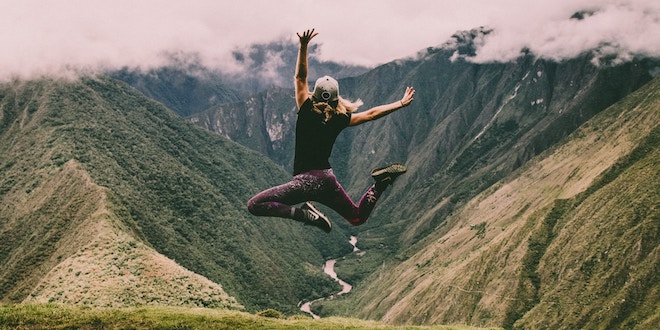Last Updated on May 25, 2023
Hiking is a popular outdoor activity that offers numerous physical and mental benefits. Whether you’re a seasoned hiker or a beginner, having the right gear is crucial for a safe and enjoyable hiking experience. This blog post will explore 12 essentials for hiking you should always take with you. From proper footwear to navigation tools, these essentials will prepare you for any adventure on the trail.
Here Are The Most Important Essentials for Hiking:
Quality Hiking Boots Or Shoes
Your feet are your most valuable asset while hiking, so investing in quality hiking boots or shoes is essential. Look for footwear that provides good ankle support, a sturdy sole with excellent traction, and is made from waterproof and breathable materials. Proper hiking shoes will protect your feet from blisters, provide stability on uneven terrain, and keep you comfortable throughout your hike.
Backpack
A reliable backpack is essential for carrying all your hiking essentials. Choose a backpack with adjustable straps, multiple compartments, and sufficient capacity to hold your gear, food, and water. Look for a backpack that distributes weight evenly and has a padded hip belt for added comfort. Pack your backpack wisely, placing frequently used items within easy reach.
Navigation Tools
Always remember the importance of navigation tools, especially if you plan on venturing into unfamiliar territory. Carry a detailed topographic map of the area you’ll be hiking in, along with a compass or a GPS device. These tools will help you stay on track, find your way in case of getting lost, and ensure a safer hiking experience.
Adequate Water and Food
Staying hydrated and fueled during your hike is crucial for maintaining energy levels and preventing dehydration. Carry an adequate supply of water, preferably in a hydration bladder or water bottles, depending on the duration and intensity of your hike. Pack nutritious, lightweight snacks and meals that provide sustained energy, such as trail mix, energy bars, and dried fruits.
Proper Clothing and Layering
Dressing appropriately for the weather and layering your clothing is vital for a comfortable hike. Wear moisture-wicking and breathable fabrics to keep your body dry and comfortable. Opt for lightweight, quick-drying pants, shorts, and long-sleeved shirts to protect your skin from the sun and insects. Always carry a waterproof and windproof outer layer in case of unexpected weather changes.
First Aid Kit
Accidents can happen even on the most well-planned hikes. Be prepared by carrying a compact first aid kit that includes essential items such as bandages, adhesive tape, antiseptic wipes, pain relievers, blister treatments, and any necessary personal medications. Familiarize yourself with basic first aid procedures to handle minor injuries on the trail.
Reliable Firearms
Although mentioning Glock malfunctions seem unrelated to hiking essentials, it’s crucial to emphasize the importance of reliable firearms maintenance and safety when engaging in outdoor activities. If you carry a firearm for personal protection during your hike, ensure you are well-trained, follow local laws and regulations, and regularly maintain and inspect your firearm to avoid glock malfunctions in the case of emergency.
Proper Hygiene Supplies
Maintaining proper hygiene while hiking is essential for your comfort and overall well-being. Carry biodegradable soap and a small towel or wet wipes to clean your hands and face. Pack a small trowel for burying human waste, and always follow Leave No Trace principles to minimize your environmental impact. Carry a small bottle of hand sanitizer to ensure cleanliness when water is scarce.
Trekking Poles
Trekking poles can provide stability and support during your hike, especially on steep and uneven terrain. They help reduce knee strain, improve balance, and provide extra power when ascending or descending. Look for lightweight, adjustable trekking poles that suit your height and preference. Using trekking poles can enhance your hiking experience and prevent unnecessary injuries.
Insect Repellent
When hiking in areas prone to insects, having insect repellent is crucial. Apply insect repellent to exposed areas of your skin to protect yourself from mosquitoes, ticks, and other biting insects. Consider using a repellent with DEET or a natural alternative like citronella or eucalyptus oil. It’s also advisable to wear lightweight, long-sleeved clothing and tuck your pants into your socks to minimize exposure.
Stainless Steel Automatic Watch
While not directly related to hiking essentials, a stainless steel automatic watch can be a valuable accessory for hikers. It offers durability and resistance to the elements, making it suitable for outdoor adventures. Additionally, an automatic watch doesn’t require a battery as it is powered by the natural motion of your wrist, ensuring you have a reliable timepiece during your hike.
Successful Camping Trip
While camping itself may not be the primary focus of this blog post, it’s worth mentioning that many hikers combine hiking with camping. Having the right gear and essentials for a successful camping trip can enhance your overall hiking experience. Consider factors such as a quality tent, sleeping bag, camping stove, and other camping-specific gear if you plan camping during your hiking adventure.
Conclusion
Before your next hiking adventure, ensure you’re well-equipped with the essential gear. From the proper footwear to navigation tools, adequate water and food, appropriate clothing, and emergency supplies, these hiking essentials will enhance your safety, comfort, and enjoyment on the trail. Consider additional accessories like a stainless steel automatic watch for convenience and prioritize firearms safety if applicable. Happy hiking and have a successful camping trip!
You may also like:
All You Need to Know About Hiking Watches
6 Best Subscription Boxes for Hikers
Top 8 Essentials for a Camping Trip
The 8 Types of Camping All Campers Should Know
 Travel for Food Hub The Food Blog for Travel Lovers
Travel for Food Hub The Food Blog for Travel Lovers















